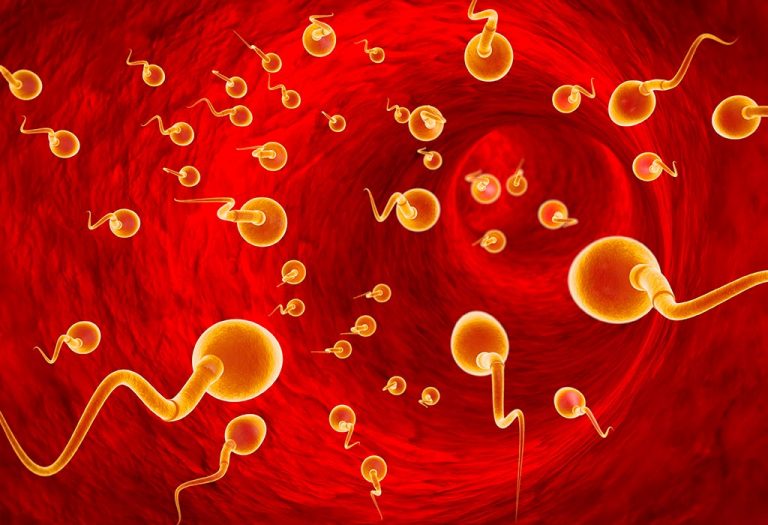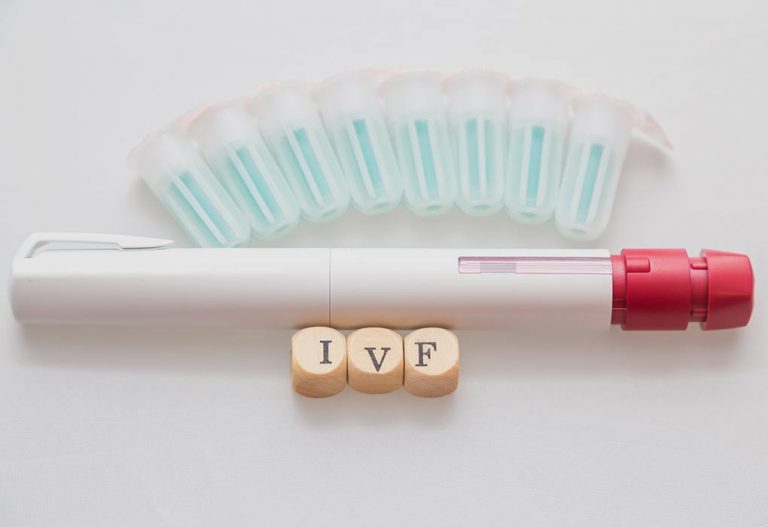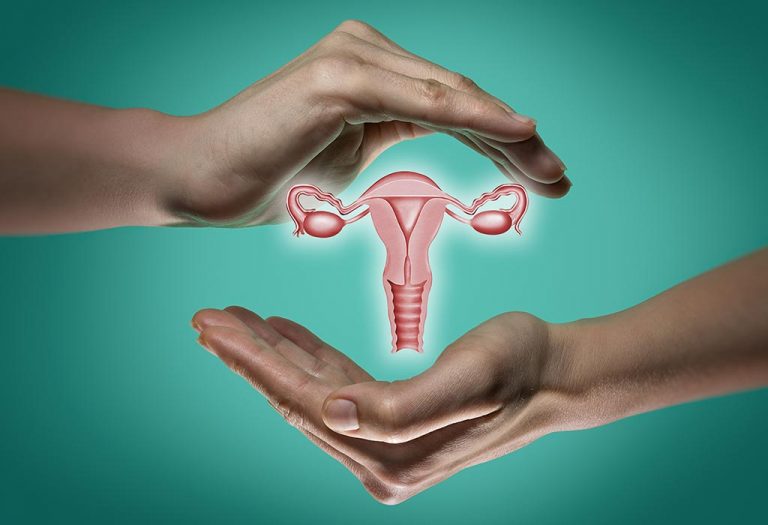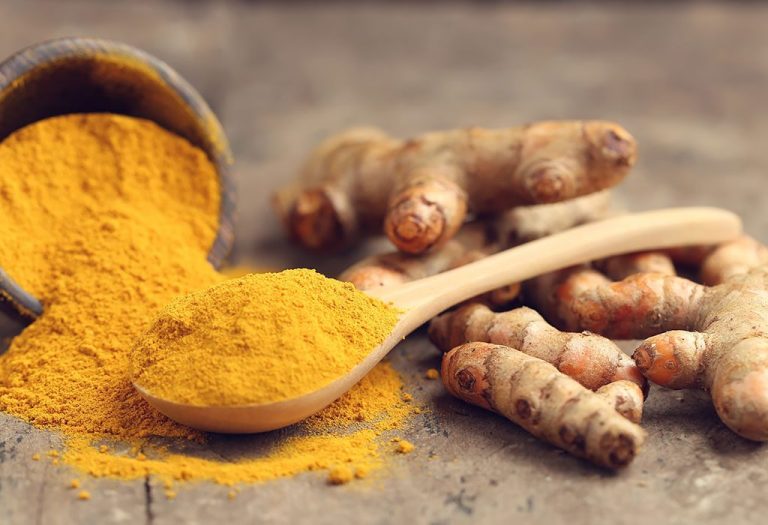24 Natural Ways to Increase Fertility in Men and Women
When most married couples think about having children and starting a family of their own, they think about factors like financial stability, physical health, getting good gynaecologists, proximity to family members, etc. The aspect of infertility doesn’t cross a couple’s mind until they fail to conceive and decide to undergo medical tests. Fertility issues can exist in the man, the woman, or both. Infertility can be a roadblock in a married couple’s life, leading to arguments and discomfort. The best way to combat the problem of infertility is to not blame either party but to find the right remedy that can boost fertility. There are plenty of natural ways to boost fertility in couples. Plus, enhancing fertility naturally should be the primary way to boost the chances of conceiving rather than going for complex medications and treatment. Join us as we explore some popular home remedies to increase fertility in this article.
What Causes Infertility?
In women, infertility can be caused due to the following reasons (1):
- Blockage in the physical paths of reproduction
- Increased levels of prolactin
- Presence of polycystic ovarian syndrome (PCOS)
- Presence of endometriosis
- Improper nutrition
- Higher age
- Celiac disease
In men, some causes of infertility are (2):
- Imbalance of hormones in the body
- Improper nutrition
- Varicocele condition
- Issues surrounding ejaculation
- Presence of anti-sperm antibodies
- Certain medications affecting fertility
- Exposure to chemicals and harmful environmental conditions
- Lifestyle choices of increased alcohol consumption, smoking, drug use, etc. (3)
Natural Remedies to Boost Fertility
Some conditions mentioned above may require medical treatment to bring back fertility. However, there are certain ayurvedic home remedies for infertility that are known to be useful. These home remedies for infertility in females are a healthy and natural alternative that does not harm the body. These top ways to help fertility are organic and can be prepared, ingested or performed from the comfort of your home, according to your needs, tastes, and body requirements. However, it is recommended that you check with your doctor before choosing to follow any remedial measures at home.
Let’s take a look at some of the popular home remedies to boost fertility!
1. Chasteberry
Chasteberry is a good option if you need to balance your hormone levels and reduce PMS symptoms (4). It directly affects the pituitary gland and is a boon for women with increased levels of prolactin. By boiling the berries in water and drinking the concoction after straining, the result is increased ovulation in women. It can also be found as capsules, and your doctor will be able to recommend the right amount of consumption. In cases of breast cancer, medicine for psychosis, and IVF, this is generally avoided.
2. Maca Root
This is a very popular answer to the question of treating infertility in women as well as men. Known to boost the production of hormones in the body, this root is beneficial, especially for women who suffer from hypothyroidism. A small teaspoon of powdered maca root with warm milk or water is the best way to consume it. It can even be used in smoothies or cereals for breakfast. Whether or not this root should be consumed during pregnancy is still a matter of debate, hence one should avoid eating it while pregnant or consult a doctor before including it in the pregnancy diet.
3. Winter Cherry
Winter cherry, or ashwagandha, is a popular herb that is known to help treat female infertility. It is generally recommended that the winter cherry herb should be consumed approximately a week following your period. A small teaspoon of this powdered herb, mixed with milk, is an appropriate dose to start improving your fertility.
4. Helonias Root
Also known as the ‘false unicorn root’, the helonias root is acclaimed for treating various reproductive-related issues such as menstruation, menopause, pregnancy symptoms, and infertility. By optimizing the levels of progesterone in the body and subsequently improving the overall estrogen activity, this herb helps generate the strength that a uterus requires during the ovulation phase. This results in the stabilization of the reproductive hormones in the body. All in all, this herb restores the hormone levels of the woman and boosts ovulation.
5. Alfalfa
Most people swear by this home remedy due to the presence of substantial vitamin value within it. Alfalfa is known to have a variety of vitamins, such as Vitamins A, C, E, and K, and is further complemented by nearly eight digestive enzymes and a few minerals. This altogether affects the body in a multitude of ways. Alfalfa balances the hormone levels by boosting low estrogen levels as well as keeping them in check if they are high, leading it to be termed as a phytoestrogen. The best way to consume it is by adding sprouts to various salads. Get the quantity checked by your doctor to avoid excessive consumption.
6. Dandelion
Dandelion is bitter in taste but has a generous quantity of vitamins and minerals within it, such as Vitamins A, C, K, folate, calcium, and potassium. Its leaves contain diuretic properties, which help the body in getting rid of various toxins. Acting as a cleansing herb, the roots of the dandelion are responsible for maintaining a hormonal balance as well as supporting liver function and keeping it healthy. Furthermore, hormonal balance can be improved by the use of dandelion.
7. Grape Seed Extract
Vitamin C is essential for potency in men. The grape seed extract is a wonderful source of Vitamin C, which can boost male fertility. The extract also contains strong antioxidant properties. These combined properties provide sperms with additional strength and protection, thus increasing their lifespan and chances of survival until they reach the female egg.
8. Royal Jelly
Obtained from beehives, this jelly resembles a cream-like substance. It is generated by the bees for the nourishment of the queen bee. Its constitution is rich in a variety of proteins, fatty acids, vitamins, sugars, amino acids, and so on. With optimal quantities of iron and calcium present in it as well, the consumption of royal jelly resets and balances hormone levels, thus increasing the chances of correcting fertility issues.
9. Fennel With Butter
Women who are on the heavier side tend to face problems with infertility. Fennel is known to treat such conditions and is one of the popular ways to improve fertility. Estrogen occurs naturally in fennel, and when this food is consumed, the natural hormone present can help regulate the reproductive cycle. Combining some fennel powder with pure butter creates a mixture that should be eaten daily for a few months. It is a good method to boost fertility.
10. Dates
Not only are dates tasty, but they also contain a variety of nutrients that support conception. Vitamins A, B, E, iron, potassium, and antioxidants are found in rich quantities within dates. All of these are necessary to allow a woman to conceive and have a healthy pregnancy right to the end. They also help with the treatment of constipation and regular bowel movements. Creating a paste of dates and coriander roots, boiling it with cow’s milk, and drinking this cooled mixture daily post your period is highly beneficial. General consumption of dates as a snack or through smoothies is great, too.
11. Omega-3 Fatty Acids
Nothing can regulate hormones as well as omega-3 fatty acids and DHA (docosahexaenoic acid), and they are well known for improving fertility in women trying to conceive naturally (5). These are highly essential for good ovulation in women and good sperm health in men. Omega-3 fatty acids are found in plenty of foods, such as different kinds of fish, seeds like flax and chia, walnuts, eggs, and leafy greens like spinach. However, be careful when eating fish with high mercury levels during conception. There are omega-3 supplements available that increase your chances of getting pregnant, and once conception has taken place, they can still be beneficial to consume to improve the brain development of the foetus.
12. Raspberry Leaves
The leaves, as well as the seed oil of the raspberry plant, are known to be extremely useful. They contain Vitamin B complex, as well as calcium and iron. The leaves are known to improve fertility in both men and women. They help regulate ovulation, and the calcium in the leaves helps in strengthening the uterus. Mixing dried raspberry leaves in hot water and drinking it as herbal tea makes it easy to consume. A couple of cups daily can help improve fertility!
13. Red Clover
Known to be a nourishing herb, the red clover is rich in Vitamin B complex, Vitamin C, calcium, potassium, magnesium, and other essential minerals. It has a great quality of being responsible for the purification of blood. It can help increase blood flow and stimulate oestrogen levels. The presence of calcium, magnesium, and other minerals assists in keeping the body’s muscle function optimal and supports the health of the female uterus. The red clover is also known to optimize the dryness of the vagina because of its estrogenic action and increase the secretion of cervical mucus.
14. Rock Salt
Sometimes, you do not need fancy and exotic herbs to treat infertility. Rock salt is readily available in the market and can assist in the improvement of fertility. By soaking rock salt in water overnight and drinking the water in the wee hours of the morning or by simply adding it to your diet, your chances of getting pregnant can improve after about 5-6 months. Rock salt contains sodium, potassium, calcium, magnesium, copper, iron, which is important to improve fertility in men n women. Consuming rock salt dissolved in water can help normalize the menstrual cycle of women, resulting in a healthy uterus. It’s possible that consuming this water may result in vomiting or diarrhoea – this is a normal reaction and should not stop you from drinking or taking any medication to treat it. In some cases, reducing the amount of rock salt water you consume can help. But to be on the safer side, we suggest that you consult your doctor before you try out this remedy.
15. Cinnamon
Here’s another option that is easily available and can help increase the chances of pregnancy. PCOS, one of the leading causes of infertility, can be combated by the consumption of cinnamon. It helps in the proper functioning of the ovaries by improving the menstrual cycle of women with PCOS. Cinnamon can also help treat other factors affecting female fertility, such as irregular periods, fibroids in the uterus or endometriosis. Furthermore, it also helps treat bacterial and yeast-related infections. Consuming it with hot water daily and including it in your diet is recommended. However, abstain from consuming more than two teaspoons.
16. Folic Acid Prenatal Vitamins
Primarily known to prevent birth-related defects in the foetus during pregnancy, folic acid is also prescribed before pregnancy. NHS and Tommy’s state that although folic acid cannot help you get pregnant, many health experts recommend it to women trying to get pregnant (6) (7). Folic acid is a key component in maintaining a fertile state by regulating the processes relevant to ovulation. All that is required is taking folic acid tablets in quantities of 400 mcg for a few months before attempting to conceive. This helps you get pregnant as well as provides crucial support in the development of the unborn baby, preventing it from brain and spinal cord defects (8).
17. Stinging Nettle
Highly recommended in treating uterus-related problems and improving fertility, the stinging nettle is a herb that directly affects the adrenal glands and helps enhance their functionality by providing the necessary hormone. It increases the chances of conception and staying pregnant for 9 months by ensuring the retention of the embryo within the uterus and reducing the chances of a miscarriage. Being a great source of vitamin K, vitamin A, vitamin D and vitamin E, nettle tea is recommended even after delivery because it aids breast milk production and provides nutrients to the newborn baby. Consumption of a couple of cups of tea for many months helps increase the chances of getting pregnant.
18. Alum
Certain women have appropriate menstrual cycles and yet fail to attain pregnancy. In these cases, alum is known to be a good remedy for restoring fertility. Take a small piece of alum and cover it with cotton. While sleeping at night, place it inside the vagina and remove it in the morning after waking up. A white milky layer will be present on the cotton. This needs to be repeated until the white layer does not appear anymore. This is a strong sign of being able to get pregnant. Following this, you can stop using the alum piece and start trying to get pregnant. But douching has many health-related drawbacks and potential risks of infections, so consult with your gynaecologist before trying out this remedy. Note: This remedy should not be tried without consulting an expert.
19. Pomegranate
Pomegranate is high in Vitamin C and antioxidants. This good old fruit is rumoured to be a natural supplement to having a long and healthy life. Beyond that, it is known to be successful in increasing fertility in both men and women. Pomegranate boosts the flow of blood to the uterus. This directly causes the uterine lining to get thicker and stronger, which, as a result, highly reduces a miscarriage from taking place. With a strong and safe uterus in place, the foetus can now develop in a healthy manner. Pomegranate should be consumed fresh, either raw or its juice, in the right quantities for a few weeks.
20. Lifestyle Changes
Along with implementing any of these home remedies, Harvard suggests making changes to your daily lifestyle, diet, and routine to combat infertility (9). Cutting down on alcohol, tobacco and caffeine, exercising regularly and moderately, eating a big and healthy breakfast, and trying to de-stress and rest are small tweaks that can complement your other efforts of trying to conceive (10).
21. Relaxation and Meditation
Yes, stress is the biggest contributor to infertility. Stress and fertility are still debated in several research spaces (11). It can affect your menstrual cycle, which can impact your fertility. Planning to get pregnant can take a toll on the mental health. However, it is essential that the stress and anxiety do not overburden you and that it affect your fertility. You can take the help of professionals to reduce your anxiety and stress or indulge in stress-reduction activities (12).
22. Refined Carbs
Refined carbs are what you need to be extremely careful of. Refined carbs are found in highly processed foods, like bread, white pasta, and sugary products. These carbs have a high glycemic index (GI) and spike blood sugar and insulin levels. High insulin levels trigger the body to produce fewer reproductive hormones, which can lead to imbalanced ovulation and lack of egg maturation. Therefore, keeping the count low on refined carbs is essential for fertility.
23. Weight
High body mass index (BMI) can affect fertility in both men and women (13). While overweight men often produce less or no sperm compared to their healthier counterparts; similarly, overweight women may struggle to get pregnant due to irregular or absent menstrual cycles. Additionally, obesity increases the risk of miscarriage. During pregnancy, overweight women also increase the likelihood of their babies developing type 2 diabetes, high cholesterol, and various heart issues. Therefore, it is essential to put a cap on what and how much you consume and maintain a healthy weight.
24. Frequent Sex
Engaging in regular intercourse, about two to three times a week, can enhance your chances of getting pregnant. This practice can strengthen your bond and reduce stress for both partners. Tracking your menstrual cycle helps identify your ovulation period, allowing you to time your intercourse during your most fertile days, thus increasing the likelihood of conception.
FAQs
1. How can I boost my chances of conceiving naturally?
By making healthy changes in your diet and lifestyle, staying hydrated, exercising regularly, and having fertility-boosting foods and herbs, and maintaining healthy weight, you can increase your odds of better and faster conceiving. Aslo, it is essential to avoid smoking and drinking alcohol during the time of conceiving to up your chances.
2. What fruits can I have to increase fertility?
Citrus fruits, like grapefruit, orange, gooseberry, etc., ae known to keep ovulation in check and increase fertility naturally.
3. Is it possible to conceive in your 40s?
Following a fertile regimen, including having a healthy diet, avoiding alcohol, tobacco and cigarettes, reducing caffeine, and having regular exercise increases your odds of conceiving in your 40s.
4. What supplements can I take over the counter for fertility?
Omega-3 fatty acids are ideal for fertility. However, it is advised you consult a medical practitioner for recommendations on supplements for fertility.
As scary as it might sound, infertility is simply a small obstacle on the path to attaining a good and healthy pregnancy. Certain complications in the body of the man or the woman might deem a medical intervention necessary to achieve a successful conception. Nevertheless, in most conditions for female and male infertility treatment, home remedies are ideal for helping your body achieve its optimal nature!
References/Resources:
1. Female Infertility; Penn Medicine; https://pennmedicine.org/for-patients-and-visitors/patient-information/conditions-treated-a-to-z/female-infertility
2. Male infertility; Mayo Clinic; https://www.mayoclinic.org/diseases-conditions/male-infertility/symptoms-causes/syc-20374773
3. Fan. D, Liu. L, et al.; Female alcohol consumption and fecundability: a systematic review and dose-response meta-analysis; Scientific Reports; https://www.nature.com/articles/s41598-017-14261-8?utm_medium=affiliate&utm_source=commission_junction&utm_campaign=CONR_PF018_ECOM_GL_PBOK_ALWYS_DEEPLINK&utm_content=textlink&utm_term=PID100090071&CJEVENT=6c234023365811ef82a93c300a18b8f9; October 2017
4. What Is Chasteberry, and What Can It Do?; Cleveland Clinic; https://health.clevelandclinic.org/chasteberry-benefits-and-risks
5. Stanhiser J, Jukic AMZ, McConnaughey DR, Steiner AZ. Omega-3 fatty acid supplementation and fecundability. Hum Reproduction; PubMed Central; https://www.ncbi.nlm.nih.gov/pmc/articles/PMC9308390/; May 2022
6. Pregnancy, breastfeeding and fertility while taking folic acid; NHS; https://www.nhs.uk/medicines/folic-acid/pregnancy-breastfeeding-and-fertility-while-taking-folic-acid/
7. Benefits of taking folic acid and vitamin D before pregnancy; Tommy’s; https://www.tommys.org/pregnancy-information/planning-a-pregnancy/are-you-ready-to-conceive/benefits-taking-folic-acid-pregnancy
8. Folic acid; OASH; https://www.womenshealth.gov/a-z-topics/folic-acid
9. Changes in diet and lifestyle may help prevent infertility; The Harvard Gazette; https://news.harvard.edu/gazette/story/2007/11/changes-in-diet-and-lifestyle-may-help-prevent-infertility/; November 2007
10. Best. D, Avenell. A, Bhattacharya. S; How effective are weight-loss interventions for improving fertility in women and men who are overweight or obese? A systematic review and meta-analysis of the evidence; Human Reproduction; https://academic.oup.com/humupd/article/23/6/681/4157319?login=false; September 2017
11. Rooney KL, Domar AD. The relationship between stress and infertility. Dialogues Clin Neurosci.; PubMed Central; https://www.ncbi.nlm.nih.gov/pmc/articles/PMC6016043/; March 2018
12. Sharma. R, et al.; Lifestyle factors and reproductive health: taking control of your fertility; Reproductive Biology and Endocrinology; https://rbej.biomedcentral.com/articles/10.1186/1477-7827-11-66; July 2013
13. Weight, fertility, and pregnancy; OASH; https://www.womenshealth.gov/healthy-weight/weight-fertility-and-pregnancy
Best Herbs to Boost Fertility
Super Effective Ways to be More Fertile
Ways to Boost Fertility After a Miscarriage
Foods To Increase Fertility For Conceiving Twins
Fertility Supplements That May Help You Conceive
Was This Article Helpful?
Parenting is a huge responsibility, for you as a caregiver, but also for us as a parenting content platform. We understand that and take our responsibility of creating credible content seriously. FirstCry Parenting articles are written and published only after extensive research using factually sound references to deliver quality content that is accurate, validated by experts, and completely reliable. To understand how we go about creating content that is credible, read our editorial policy here.



































